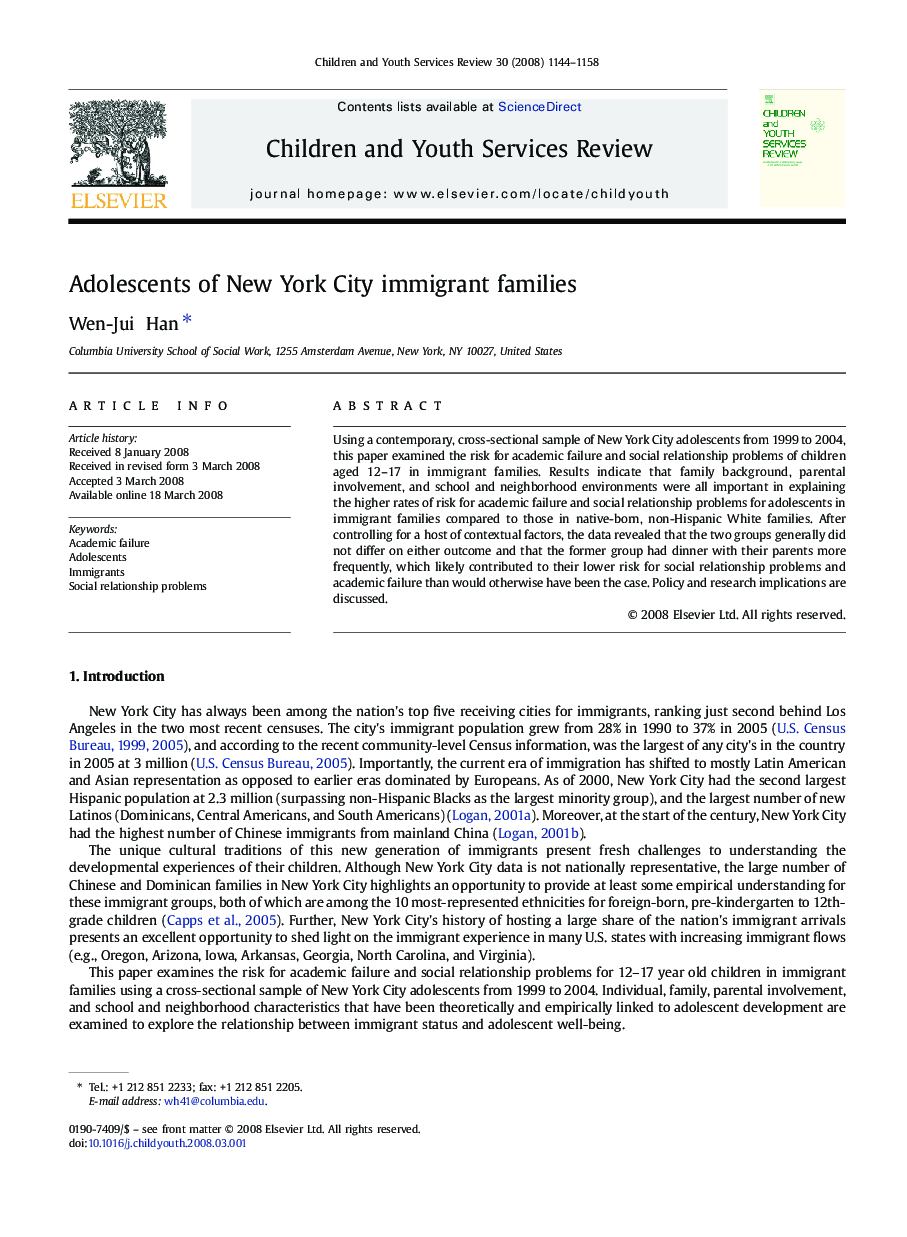| Article ID | Journal | Published Year | Pages | File Type |
|---|---|---|---|---|
| 347072 | Children and Youth Services Review | 2008 | 15 Pages |
Using a contemporary, cross-sectional sample of New York City adolescents from 1999 to 2004, this paper examined the risk for academic failure and social relationship problems of children aged 12–17 in immigrant families. Results indicate that family background, parental involvement, and school and neighborhood environments were all important in explaining the higher rates of risk for academic failure and social relationship problems for adolescents in immigrant families compared to those in native-born, non-Hispanic White families. After controlling for a host of contextual factors, the data revealed that the two groups generally did not differ on either outcome and that the former group had dinner with their parents more frequently, which likely contributed to their lower risk for social relationship problems and academic failure than would otherwise have been the case. Policy and research implications are discussed.
